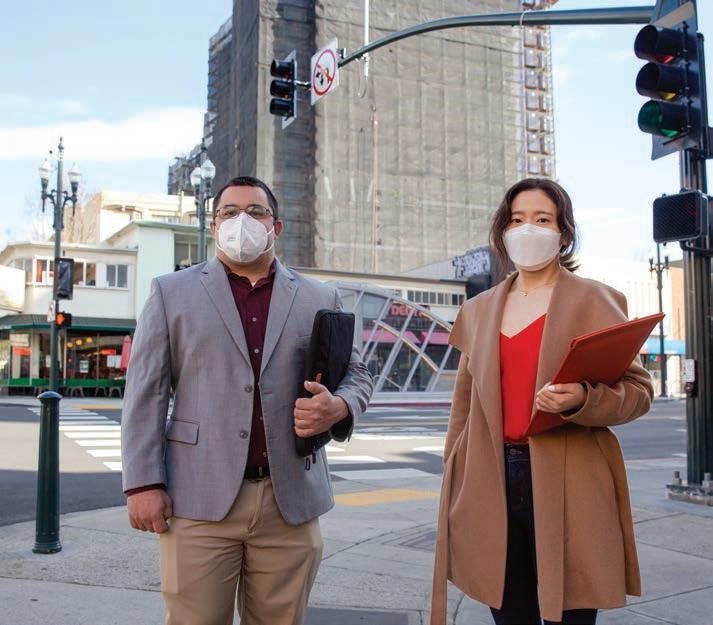
2 minute read
Ready, Tech, Action
Eyeing solutions, students push to make technology law an engine for anti-racism work
As the police killings of Breonna Taylor, George Floyd, Jacob Blake, and other Black people pushed America’s long-simmering relationship with racial justice to a boil last summer, student leaders of the Berkeley Technology Law Journal saw an overdue area for advancing social change.
The result — “Technology Law as a Vehicle for Anti- Racism,” a two-day virtual symposium in November — aimed higher than just igniting a conversation. Co-hosted by the Berkeley Center for Law & Technology (BCLT) and open to all, the event sought to stoke flames of action.
The many ways tech-based tools can adversely affect people of color is an emerging hot topic, from concerns about the biases of pretrial algorithms to reports that the software used to administer remote bar exams failed to recognize a dark-skinned face.
“It’s a great time to address how technology, which has taken over so many aspects of our lives, intersects with very special considerations of race and how racial minorities are affected by new technologies in distinct ways,” says Allan E. Holder ’21 (see page 26), chief symposium organizer and the journal’s senior online content editor.
“You read study after study about the impacts technology makes,” says symposium co-lead organizer and the journal’s senior executive editor Harrison Geron ’21. “But there aren’t many people, especially in the active practice of technology law, talking about how we can push institutions to really do something.”
The students planned the symposium at lightning speed and attracted big names, from the keynote speakers — former Federal Communications Commissioner Mignon Clyburn and U.S. Rep. Ro Khanna of California — to prominent academics. Hundreds of online attendees nationwide saw panels on algorithmic bias; net neutrality and minority populations; evidence, expert testimony, and race; and privacy as a civil right.
“This symposium represents so much for us here at the journal and I believe, based on the overwhelming, positive responses we received afterwards, the technology law community at large,” says Editor-in-Chief Emma Lee ’21.
Symposium leaders hope to see similar discussions at other law schools, and to see race and technology brought into their curriculums.
“Many students in law schools across the country don’t get a lot of opportunities to examine the intersection of technology, law, and minority identities,” Holder says. “We want to foreground this conversation, make it more prevalent, and incorporate it into mainstream conversations about how technology law impacts people.”
BCLT Executive Director James Dempsey relished seeing students seize the moment.
“I’m so proud of them,” he says. “They took their anger and anguish over police violence and systematic racism in America and channeled it to examine the positive ways in which law can promote a more just application of technology throughout our society. That’s the finest form of lawyering in the Berkeley tradition: taking your passion for justice and applying it to produce objective analysis and concrete proposals for reform.” —Gwyneth K. Shaw







